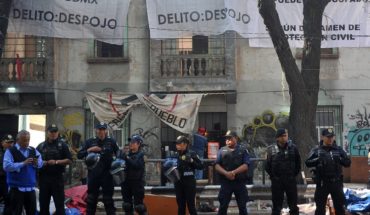One of the structural pillars of inequality in Chile is the model of labor relations inherited from the Labor Plan of the Military Dictatorship, made up of Decrees Laws 2.200, 2,756 and 2,758. 29 years after the return to democracy, there have been no legal reforms aimed at supplanting that model that underpins an important part of the inequality that exists in our country. The reforms introduced during the transition period have been simply peripheral or cosmetic, so the rules of the game in labor are still those designed by Pinochet’s military dictatorship (even after the labor reform of Michelle Bachelet’s government).
Now, why do we say that the right to work is at the center of injustice? Several reasons explain that claim. Let’s check it out.
First reason: our industrial relations model emphasizes the individual relationship of work, deeply suspicious of the collective action of workers. This mistrust materializes in excessive regulation of collective labour relations, mainly of two key rights: collective bargaining and strike action.
And why do putting the emphasis on the individual relationship in the disarray of collective relationships mean that the right to work is at the center of injustice? Simple. Because on an individual level the worker does not have any power (as Kahn-Freund said in 1972), and simply submits to the dictates of his employer: he is given to the private power of the one who organizes and directs the work of others.
Second reason: Chile is a haven for labor flexibility. According to data provided by the Sol Foundation, 18.17% of salaried workers are outsourced (subcontract or supply); 16.7% of dependent workers work without a contract of employment and 48.8% of those who work part-time are underemployed.
Third reason: in Chile, labour formality is not a guarantee of decent work. In other words, job lessenment is not only suffered by those who do not have a written employment contract – the informal ones – but also those who have written employment contracts – the formal ones. Under the capitalist model, a paradigm of exacerbated accumulation has been introduced that leads to the reduction of rights and social protection: the use of flexible recruitment tools, freedom of covert dismissal through the cause of the needs of the company, the polyvalence or multifunctionality of the workers, the high turnover of the jobs, the excessive use of the outsourcing of services, extensive working hours, ambiguity of the employer through the multiplicity of reasons generalized low wages and, above all, the evil of all evils, the lack of power on the workers’ side.
This leads us to conclude that our job model has institutionalized job precariousness. Even those with an indefinite written employment contract cannot sing victory and project their careers. According to empirical research conducted by Durán (2019), 50% of indefinite contracts last less than 15 months, what is linked to what has been said recently: in Chile there is a model of free redundancy covered up through the consecration of the cause of dismissal of the needs of the company, and even, because the legislature enshrines the layoff purely verbal, without giving an adequate and deterred penalty when the needs invoked are not such or when a verbal dismissal is simply generated.
The labor instability that permeates Chile’s model of industrial relations leads to a discipline of workers: they submit without further question to the dictates of their employer for fear of losing their source of sustenance, immobility, which by the way, prevents them from acting and organizing collectively.
Fourth reason: the absence of a social security system. Another legacy of the military dictatorship that has been maintained and even perfected for the benefit of administering enterprises is the system of individual capitalization or forced savings, through which the pensions of Chilean workers are financed. As its pillars are not the basic principles of social security – universality, solidarity and sufficiency – in Chile 50% of workers who are pensioned, despite having quoted practically all their working life (between 30 and 35 years), do not know how to finance a pension that is at least equivalent to the minimum monthly income (data extracted from the studies of the Sol Foundation).
Fifth reason, which in my view is the basis of injustices: the lack of representation and power of workers. We have already seen this reality in other writings: the normative model of collective labour relations is strongly restrictive of trade union autonomy. Let us remember that in the last labour reform (the one in 2017, defended by the Chilean left centre), the quorum for the constitution of trade unions was increased, and although it eliminated, albeit with nuances, an institution inherited from the dictatorship – the replacement of striking workers-, an institution that has fulfilled precisely that function – that the strike did not completely stop productive activity. We mean minimum services. Along with this, this reform did not again touch the heart of the model: collective bargaining, a right that is essential to generate the long-awaited redistribution of wealth. It remains based in the undertaking, and therefore remains inconsequential for those purposes.
We could describe many other reasons, but these are already central to understanding some of the causes of the profound inequality in our country. The path that citizens have opened to build a new Constitution between all, must also open the way for the necessary elimination of the model of industrial relations of the military dictatorship.
The content poured into this opinion column is the sole responsibility of its author, and does not necessarily reflect the editorial line or position of El Mostrador.





